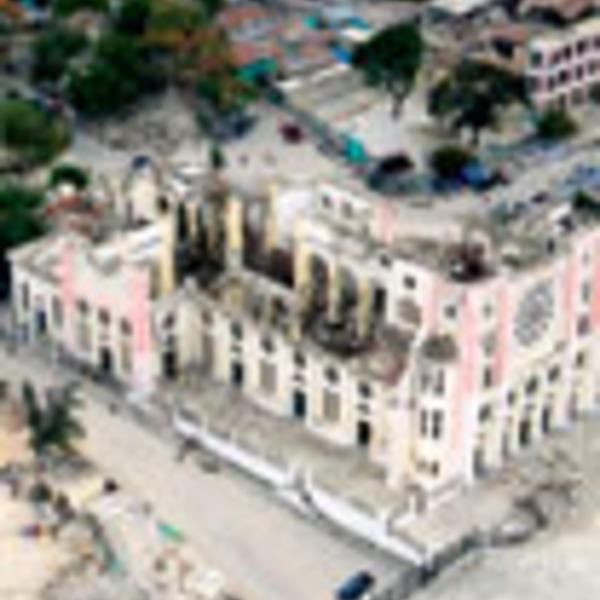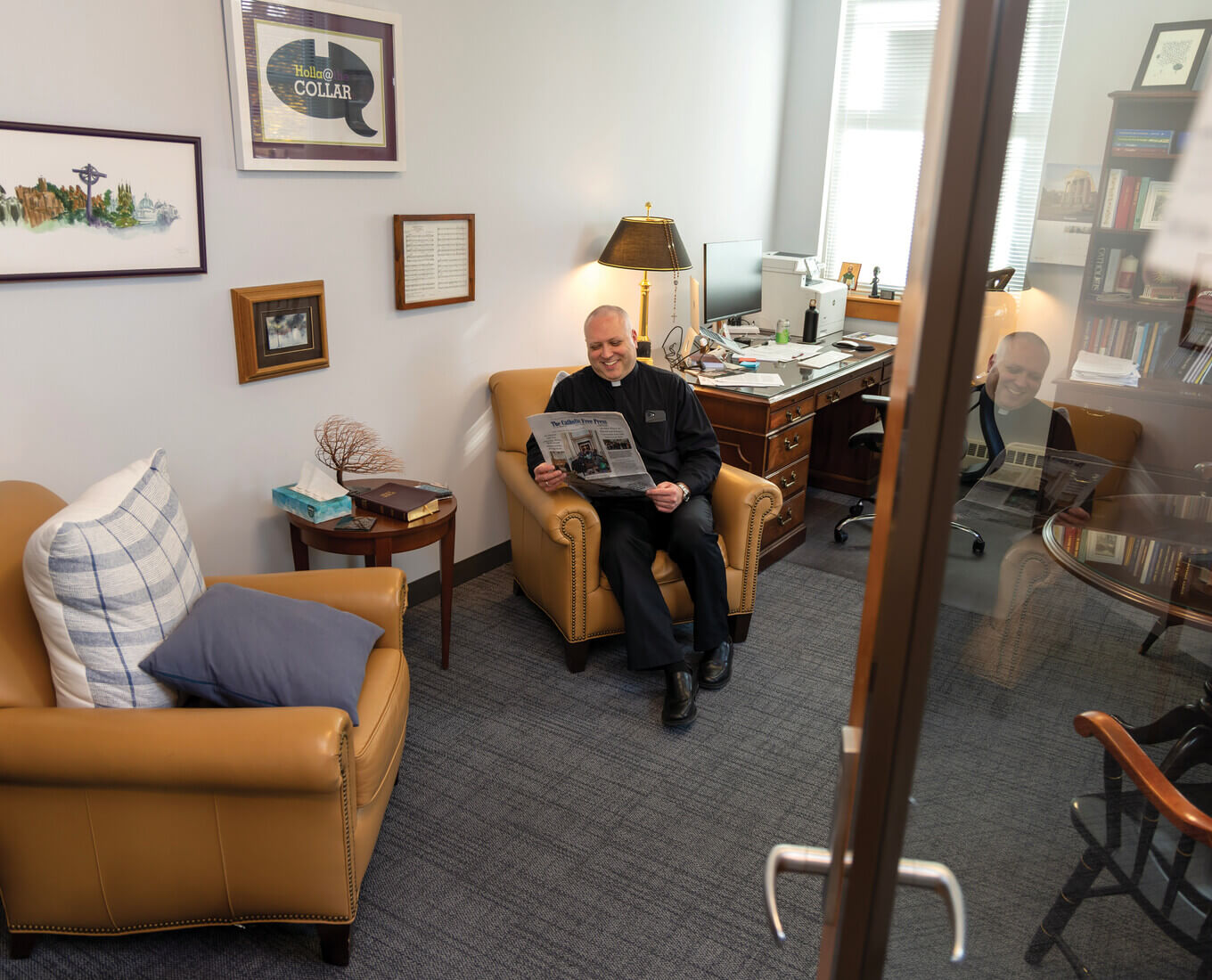What is the appropriate role of the international community in responding to Haiti’s ongoing plight?
On Jan. 29, Holy Cross presidential scholars met to tackle that complex question as part of the fifth annual Presidential Scholars Public Policy Symposium.
Under the direction of Christina Chen, director of Academic Services and Learning Resources, and Thomas R. Gottschang, professor of economics, the event challenged students to define strategies for a new era of humanitarian assistance in which the international community fosters Haitian leadership of the reconstruction process and the country’s future.
The annual symposium provides an intellectually challenging forum for presidential scholars (students entering Holy Cross with merit scholarships and current Charles A. Dana Scholars) to explore compelling issues of public policy with their peers. Past topics have included domestic violence, U.S. immigration and global climate change. This year’s event — held shortly after the one-year anniversary of the Jan. 12, 2010 earthquake in Haiti — challenged students to reflect on the fault lines of failed policies and explore new models of development aid.
The 17 participants were organized into three student-led delegations representing the interests of the Haitian government, international organizations and foreign governments, and international non-governmental organizations. Representatives from each of these groups participated in thematic working groups on issues such as infrastructure, healthcare and the economy.
At the end of the day, each delegation presented their unique plans for a new era of humanitarian assistance in Haiti. Chen notes that although unanimous in identifying the importance of debris removal and eliminating the cholera epidemic, the delegations differed on specific solutions.
Jonathan Stepsis ’13, an economics and political science double major, was surprised by the myriad obstacles to consensus. Going through the exercise, the College Honors Program student says, helped him better understand the complexities of the policy-making process.
Realizing that solutions to global issues are not easily met is one of the key takeaways of the symposium.
“Students come to understand that people of goodwill and intelligence may not always agree on the best approach,” says Chen. “It’s very hard to come to an agreement.”
Students like Peter Renehan ’12, a chemistry major with an environmental studies concentration, also gained a new perspective on public policy’s relevance to academic interests. The health professions student, who is also in the College Honors Program, admits “previously knowing little” about Haiti. “The symposium both solidified my interest in healthcare and broadened what that interest means.”
For others, the symposium was an opportunity to explore an issue close to heart.
“Haiti is my neighbor country,” says Scarlett Piantini ’11, a native of the Dominican Republic, who has designed her own multidisciplinary major titled Global Institutions and Law. In 2009, Piantini, who is also a French minor, created a summer camp to increase understanding and acceptance between Haitian and Dominican children with a Davis Projects for Peace grant.
“As a Jesuit institution, caring for the needs of others is part of our ethos,” says Gottschang. Students also referenced this culture of compassion and solidarity as motivation to participate in the symposium. Piantini says, “I feel that, more than ever, students like us need to force ourselves to be in [Haitians’] shoes.”
By Tricia Dunn ’12
Related Information:
- Holy Cross Magazine cover story: 'Haiti’s Struggle'


